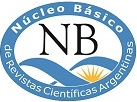Uses and problems of Web APIs in the Argentine Republic
DOI:
https://doi.org/10.33414/rtyc.44.79-97.2022Keywords:
Rest APIs, Web Apis, Web ServiceAbstract
Web APIs enable software reuse and access to services and resources, and have produced a real business perspective, the API Economy. For this reason, insights have become essential, to help define benchmarks and provide insights into emerging trends at various stages of the development lifecycle. This paper presents the results of the first survey focused mainly on developers in Argentina. The objective of the study is to know the uses and problems of software developers who consume web APIs in Argentina. This survey collected information based on opinions and experiences. The results indicate that external APIs, such as REST, storage, eCommerce are the most used. The most critical issues reported focus on changes due to the evolution of the APIs and the fields included in the responses. In relation to usability, errors such as the lack or poor documentation and, as a worrying aspect, the predominance of manual problem solving stand out.
Downloads
References
Aué, J. Aniche, M., Lobbezoo, M., & van Deursen, A. (2018) “An Exploratory Study on Faults in Web API Integration in a Large-Scale Payment Company”. In ICSE-SEIP '18: 40th International Conference on Software Engineering: Software Engineering in Practice Track (pp. 13-22), Association for Computing Machinery (ACM). https://doi.org/10.1145/3183519.3183537
Brito, A., Valente, M.T. , Xavier, L. (2020) “You broke my code: understanding the motivations for breaking changes in APIs,” Empir Software Eng 25, 1458–1492.
Businge, J., Serebrenik, A. and van den Brand, M. (2013) "Analyzing the Eclipse API Usage: Putting the Developer in the Loop," 2013 17th European Conference on Software Maintenance and Reengineering, pp. 37-46, doi: 10.1109/CSMR.2013.14.
Chaturvedi, A., Tiwari, A., Binkley, D. and Chaturvedi, S. (2021) “Service Evolution Analytics: Change and Evolution Mining of a Distributed System,” IEEE Transactions on Engineering Management, 68(1), 137–148, 2021 https://doi.org/10.1109/tem.2020.2987641
De, B. (2017)“API Management: An Architect’s Guide to Developing and Managing APIs for Your Organization,” 1st edn. Apress, Berkeley.
Document, Carnegie-Mellon Univ Pittsburgh PA Software Engineering Inst.
Duala-Ekoko, E. and Robillard, M.P. (2012) "Asking and answering questions about unfamiliar APIs: An exploratory study," 2012 34th International Conference on Software Engineering (ICSE), pp. 266-276, doi: 10.1109/ICSE.2012.6227187.
Espinha, T., Zaidman, A. and Gross, H. (2014) "Web API growing pains: Stories from client developers and their code," 2014 Software Evolution Week - IEEE Conference on Software Maintenance, Reengineering, and Reverse Engineering (CSMR-WCRE), pp. 84-93, doi: 10.1109/CSMR-WCRE.2014.6747228.
Fokaefs, M. , Mikhaiel, R., Tsantalis, N., Stroulia E. and Lau, A. (2011) "An Empirical Study on Web Service Evolution," 2011 IEEE International Conference on Web Services, pp. 49-56, doi: 10.1109/ICWS.2011.114.
Fowler, F. J. (2013) “Survey research methods,” Sage publications.
Ghazi, A. N. , Petersen, K., Reddy and Nekkanti, H. (2019) "Survey Research in Software Engineering: Problems and Mitigation Strategies," in IEEE Access, vol. 7, pp. 24703-24718, 2019, doi: 10.1109/ACCESS.2018.2881041.
Kasunic, M. (2005) “Designing an effective survey,” Technical report, DTIC
Li, J., Xiong, Y., Liu, X. and Zhang, L. (2013) "How Does Web Service API Evolution Affect Clients?," 2013 IEEE 20th International Conference on Web Services, pp. 300-307, doi: 10.1109/ICWS.2013.48.
Piccioni, M., Furia, C.A. and Meyer, B. (2013) "An Empirical Study of API Usability," 2013 ACM / IEEE International Symposium on Empirical Software Engineering and Measurement, pp. 5-14, doi: 10.1109/ESEM.2013.14.
RapidAPI, Developer Survey 2020 Report. (2020) RapidAPI - The Next Generation API Platform.
Robillard, M.P. (2009) "What Makes APIs Hard to Learn? Answers from Developers," in IEEE Software, vol. 26, no. 6, pp. 27-34, doi: 10.1109/MS.2009.193.
Sawant, A.A., Aniche, M., van Deursen, A. and Bacchelli, A. (2018) "Understanding Developers' Needs on Deprecation as a Language Feature," 2018 IEEE/ACM 40th International Conference on Software Engineering (ICSE), pp. 561-571, doi: 10.1145/3180155.3180170.
SmartBear. (s. f.). (2020) State of API 2020 Report, Software Testing, Monitoring, Developer Tools, SmartBear. https://smartbear.com/resources/ebooks/the-state-of-api-2020-report/
Stocker, M. and Zimmermann, O. (2021) “From Code Refactoring to API Refactoring: Agile Service Design and Evolution”, Conferencia Symposium and Summer School on Service-Oriented Computing Pages 174-193 - Editor Springer, doi 10.1007/978-3-030-87568-8_11.
Tan, W., Fan, Y., Ghoneim, A., Hossain, M. A. and Dustdar, S. (2016) “From the Service-Oriented Architecture to the Web API Economy,” IEEE Internet Computing, 20(4):64–68, 2016.
Uddin, G. and Robillard, M.P. (2015) "How API Documentation Fails," in IEEE Software, vol. 32, no. 4, pp. 68-75, doi: 10.1109/MS.2014.80.
Wohlin, C., Runeson, P., Höst, M., Ohlsson, M. C., Regnell, B. and Wesslén, A. (2012) “Experimentation in software engineering,” Springer Science & Business Media.
Published
How to Cite
Issue
Section
License
Copyright (c) 2022 Marcela Constanzo, Sandra Isabel Casas, Graciela Beatriz Vidal, Diana Cruz

This work is licensed under a Creative Commons Attribution-NonCommercial 4.0 International License.

















